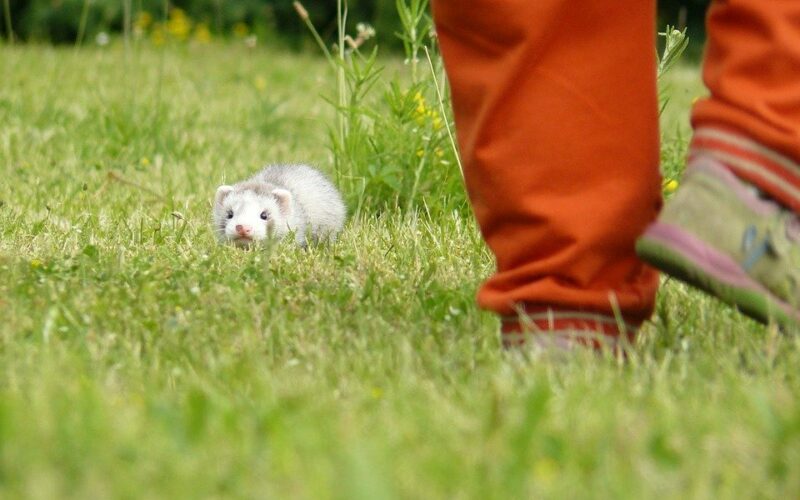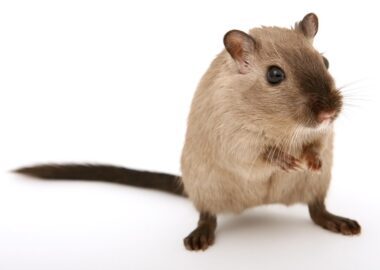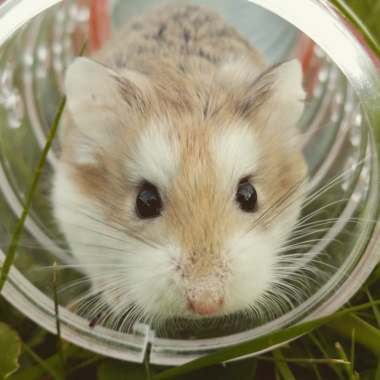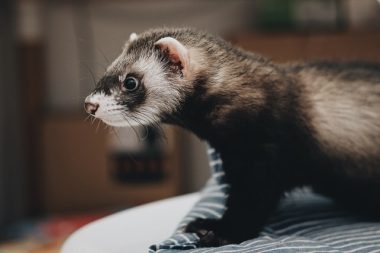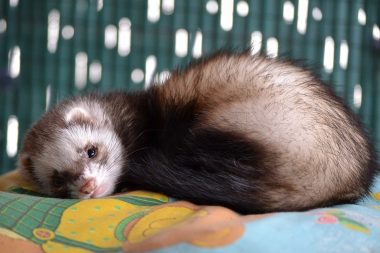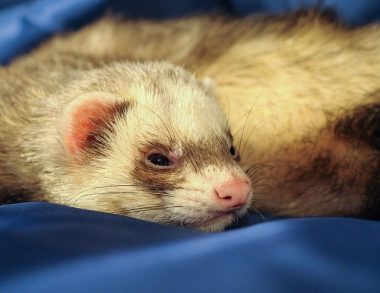The ferret is a carnivorous animal belonging to the weasel family. These animals are playful and inquisitive by nature and can learn to see humans as their companions. Domestic ferrets have been around humans since 450 BCE. They were essentially domesticated to keep the mouse population under control and also help hunt rabbits. Domestic ferrets can be found in almost every region in the world, except for Antarctica. In popular culture, they are deeply misunderstood. In recent times, they have become a very popular choice for a pet, due to their cheeky and charming nature.
What is the lifespan of a ferret?
With regard to what is the lifespan of a ferret, if they are well cared for, they can live up to 6 to 10 years. There are several factors that affect a ferret’s lifespan. Their life expectancy is dependent on how well cared for they are.
A pet ferret’s lifespan can be extended by ensuring that they are well taken care of. A pet ferret that is fed well and exercised properly tends to have a longer lifespan. The sort of treatment that a pet ferret receives can greatly alter the response to what is the lifespan of a ferret.
Are ferrets hardy creatures?
Ferrets are considered to be relatively hardy creatures. What is the lifespan of a ferret has been impacted ever since ferrets started gaining popularity as pet animals. Many domestic breeders have come into the market and improper breeding practices are lowering the lifespan of ferrets.
Lately, it has been increasingly common for ferrets to die early. This is greatly attributed to improper breeding practices. It is recommended to buy ferrets from a high-quality breeder, to increase the chances of the ferret living a long life.
What are the factors that can impact the lifespan of a ferret?
Ferrets should be taken care of just like any other pet animal. They are not any less maintenance.
1) Food
Pet ferrets benefit from a well-balanced diet. A healthy diet for a pet ferret is high in protein and low in carbohydrates. Since ferrets are carnivorous animals, their diet must contain as much meat as possible. Ideally, a pet ferret must be fed ferret-formulated food, after going over its ingredients. If ferret-formulated food is not available, wet cat or dog food with at least 36% protein content can be fed to ferrets.
Ensure that the pet ferret is the correct size as obesity can cause several health complications, which can impact the lifespan of the ferret.
2) Heath care
Ferrets are prone to diseases. Since their popularity as pet animals has increased only in the recent past, several vets are not trained to treat ferrets. It is essential to find a vet who understands how to care for ferrets. Ferrets are prone to majorly three diseases- canine distemper, rabies and the Aleutian disease virus. Regular visits to the vet and routine testing can help ensure that there are no underlying issues that can affect what is the lifespan of a ferret. Also, remember to vaccinate them as soon as possible.
3) Mental stimulation
Ferrets are curious and intelligent animals. Their mental and emotional health has a huge impact on their lifespan. A pet ferret requires interaction and attention from its caregivers. Contrary to popular belief, ferrets are not “low maintenance” pets. They require as much care and attention as any pet dog or cat.
Ferrets can benefit from having other ferrets around them. Several people adopt them in pairs if they can afford the time and money required to properly raise two ferrets.
How can the lifespan of a ferret be increased?
Caregivers can have a huge impact on the lifespan of a ferret. There are measures that can be taken to ensure that the pet ferret lives a full and healthy life.
1) Spaying and neutering
Unspayed female ferrets suffer from high estrogen levels, which in turn can cause serious anemia. This anemia can be dangerous and even fatal. Male ferrets do not undergo this issue but neutering them promotes general good behavior and health.
2) Knowing the ferret and breeder history
Genetics has the largest role to play in any animal’s health. Interact with the breeder and understand their breeding practices. Ferrets form their habits in the first three months, while they are still with their breeder. Ensure that the breeder has been able to pay individual attention to each ferret and has steered away from inbreeding.
3) Environment
Ferrets are sociable animals who require plenty of space to run about and play. Make sure that the area is free from any hazardous or toxic substances, electrical wires or poisonous plants. Their space must be safe, warm and ventilated. Ferrets that are caged for most of the day or which live in stressful environments may not comparatively live very long. They like to sleep in dark and enclosed places, so exercise care to avoid tragic accidents.
4) Attention to diet and healthcare
Ensure that the ferret is fed quality food, which is preferably ferret-formulated. To keep them healthy and happy, add a variety of nutritious food to their diet. Also, make sure that the ferret is up-to-date on all its vaccinations. Dental cleanings and frequent health checkups can also contribute to their longevity.
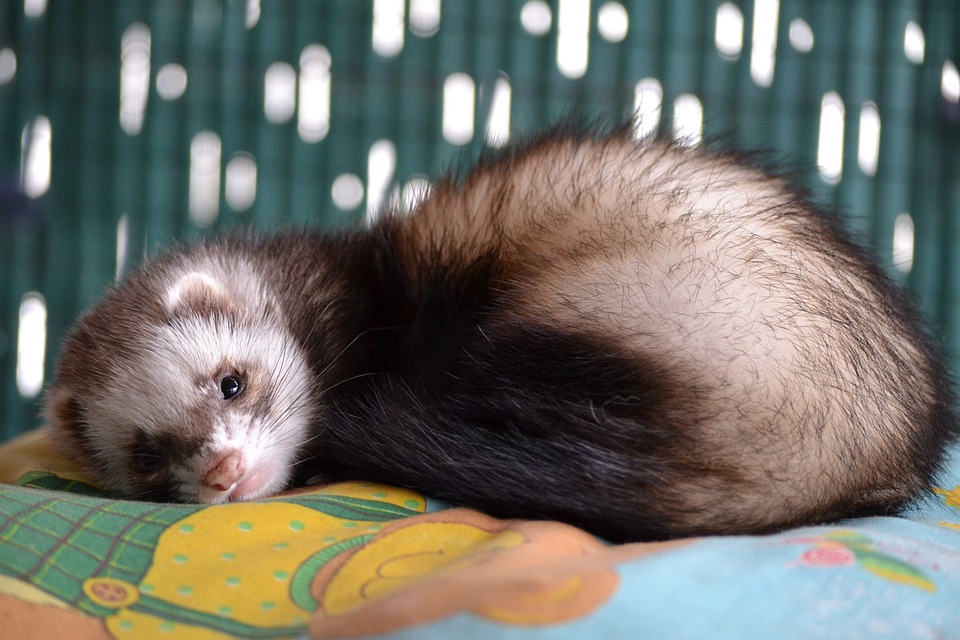
Lately, ever since the general popularity of pet ferrets has increased, access to ferret care has also improved. There is better food, healthcare options and knowledge about them available. What is the lifespan of a ferret can now be improved by providing adequate care to the furry little animals. There is no single way of taking care of pet ferrets since each animal and situation is widely different. Ferrets tend to become tame, playful and curious in captivity. This means that they are heavily dependent on humans for survival. Help your domesticated ferret live longer by acquiring enough information about their healthcare and survival!
